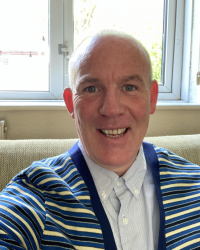A skill of a therapist
When setting out to train in the art or science of counselling there are many skills to take in and consider. One of the golden opportunities is to learn about the power of empathy.

When a client walks into the therapy room for the first time the greeting is important. You may have some previous information, however, the look tells more. Nervousness is often the case. Settling down into the chairs the first empathic understanding has happened, as both the therapist and the client meet with some trepidation.
Empathy is artistic and scientific. It’s evidence-based and creative all in one. When you meet the client in the eye of connection, it’s so healing that words are hard to describe at that moment. Some may say spiritual, magical, powerful or healing.
Currently, as a form of help, it’s becoming more and more common for people who suffer from a particular complaint to talk to the same people who suffer from that condition. It’s happening a lot and it’s helping for sure. The power of empathy is in action in many ailments.
The feeling gained from empathy can be a sense of not being alone with their problem. A relief and less anxiety. A kind of warmth for them physically. In a productive way, mutual trust can be formed, especially in what the other is saying regarding their particular symptoms. It’s then more likely for them to try out what has helped them manage. Thus, potentially making a breakthrough in their recovery.
My personal experience as a therapist is that I take empathy as a tool very seriously. In some instances, I’ve gone to some lengths to understand the client's world. For example, I’ve tried to learn a particular skill that the client has a close connection with. I do this without letting the client know. I do it because I feel it’s important in the therapeutic relationship. I also believe it can help in empathic understanding that in this instance is unspoken.
Empathy for the therapist and client has its benefits. It can be subtle or more evident. However you experience it, whether it’s memorable or a fleeting moment it can be profoundly useful.
Methods such as art or music can evoke empathy. When the words of a song capture the same emotion of both the therapist and client, they have met on common ground. This is a very humanised process as the professional reveals some aspects of themselves. They are related to one another in a real snapshot moment.
In terms of science-based research- empathy has its place. Mutual support groups are an example of proof of success in recovery. Currently, statistically, it leads the way and has a great emphasis on empathy. Relating to each other is key.
So if you’re going into therapy be prepared for a moment or two of surrealism. Hopefully, it can show you that we too have experiences within the containment of our profession. It’s possible to step into each other’s worlds to realise the aim of this skill.

Find the right counsellor or therapist for you
All therapists are verified professionals
